“Death, be not proud, though some have called thee Mighty and dreadful, for thou art not so; For those whom thou think’st thou dost overthrow Die not, poor Death, nor yet canst thou kill me. From rest and sleep, which but thy pictures be, Much pleasure; then from thee much more must flow, And soonest our best men with thee do go, Rest of their bones, and soul’s delivery. Thou art slave to fate, chance, kings, and desperate men, And dost with poison, war, and sickness dwell, And poppy or charms can make us sleep as well And better than thy stroke; why swell’st thou then? One short sleep past, we wake eternally And death shall be no more; Death, thou shalt die.”
John Donne
As I write this, I’m working with a hospital trust on improving cancer pathways and performance. Twice a day I walk through the Oncology department to and from my desk, and as I do I pass people waiting for their appointments. The ladies cope with the hair loss by adopting head scarves, though for men you would not necessarily know on sight if they were receiving chemotherapy or not, other, perhaps, than by the drawn and haggard look. It is a touching sight, all the more poignant since my dad had and may well have died from prostate cancer, a friend recently went through chemo and radiotherapy for breast cancer, and scarcely a day goes by without a friend of a friend or their relative being diagnosed with, being treated for or dying of cancer. It is the modern disease, the one to which we succumb if we survive heart disease – or at least some variant of the big C.
Wit is a poignant made-for-TV movie about cancer, clinicians and their treatments, death and metaphysical poetry, notably John Donne, on whom the main protagonist, Prof Vivian Bearing, is a leading expert. It is crisply scripted, coolly ironic in tone, acted with grace and beauty, is heartbreakingly moving and, obviously, has a tragic and noble wit worthy of Wilde. To be frank, it richly deserves a place in my top 20 movies of all time, not simply through its subject matter but on sheer merit. Strong words, softly spoken.
Wit also reveals its stage roots, being an adaptation of the play by Margaret Edson. Emma Thompson‘s Vivian, in the absence of family and/or friends visiting her – there apparently being none in the life of this self-reliant woman – breaks the fourth wall, talking direct to the camera and revealing scenes from her 48 year life almost as a journal during her aggressive cocktail of toxic drugs to target her aggressive stage 4 ovarian cancer, right through to the moments when the medics ignore her “do not resuscitate” sign and try to bring her back from the dead.
Emotionally jarring throughout, her performance is richly intelligent, perceptive, understated and nothing short of brilliant, and this from an actress on whom I’ve recently lavished praise for her fine performance in, amongst others, Saving Mr Banks. This is a bravura performance, one in at least three dimensions – far more so than any 3D gimmick. It has depth and subtlety, it is utterly compelling from start to finish. I urge you to watch Wit to see how acting for the screen should be done, even if the subject matter appalls you. The fact that she is surrounded by a galaxy of wonderful talent (including Harold Pinter as her father) is further reason to watch, admire and be beguiled.
The screenplay, jointly written by Thompson and director Mike Nicholls with minimal change from the play, is a joy; it is as eloquent as you would expect for the words of a Professor of English Literature; it flows like a Mozart piano concerto. Eileen Atkins, also riveting to watch, playing Bearing’s tutor Prof Evelyn Ashford, explains why changes to the punctuation in a later edition of Donne’s poetry destroy the meaning of the work with such vivid clarity that you yearn to do your PhD in English literature.
Language is the weapon at Bearing’s disposal and with the articulation of Donne in describing the inevitability of death, the elephant in the room when Dr Kelekian (Christopher Lloyd), sidekick Dr Posner (Jonathan M Woodward) – who performs an excruciatingly embarrassing internal examination on Dr Bearing while telling her he was once her student – and team are around, sets the subject into sharp relief. The only breath of true human kindness and empathy, the only one to listen and understand Bearing’s simple message, is nurse Susie Monaghan (Audra McDonald).
We linger on Bearing as her confessional continues, of the increasingly dreadful side effects of the full dose chemo, of which the medics are so proud, in spite of those wonderful cancer cells continuing to multiply in the grapefruit-sized tumour on her ovary. We hear how the chemo destroys her immune system, that she is in isolation not because of her cancer but because of the treatment for cancer, a paradox Donne would have adored and which would flummox her students, but of which the clinicians seem wholly unmoved or unaware.
Some might view the subject matter as depressing, but I see it as inspiring – grasping the nettle of the biggest taboo, the reality our society would sooner quietly ignore, in the same way that Whose Life Is It Anyway tackled euthanasia head on, all guns blazing. Cancer is not a subject to fear, but it does require rational thought and informed discussion, though if you thought Wit is merely a a public information film explaining in detail the side effects of cancer drugs, the prognosis for stage 4 cancers and the need for regular preventative checks, think again. It explores the emotional realities we all have to face, then places them in context. Death is inevitable and another reality that will occur to patients with late-diagnosed malignancies, whether or not they are guinea pigs for new treatments. This is not a one-foot-in-the-grave grim waiting-for-the-inevitable movie, however it sounds, but a voyage of discovery around the topic from many aspects, and certainly left me wanting to seize the day, not give up hope.
In discussing these weighty subjects it sweeps away many myths and misconceptions in a light and often funny way, but they are as nothing compared to the humanity of Bearing and her situation, and the dehumanising effect of being treated as an object, almost like a talking robot or a car programmed with preset responses they can understand – by doctors who can’t or prefer not to communicate the inevitable truth (still an issue today with the clinicians I meet day-to-day.) Bearing’s ironic answers to their questions and her comparison between philosophy and medicine, both conveying the same title but at the polar opposites of understanding, underscore this reality.
Beyond the reality of her treatment, Bearing wonders what tribute her university colleagues will make in her honour, concluding they will bring out a volume of their own essays on Donne, since she will not be around to contradict them – they are more concerned with their own bubble than to care enough to visit her.
Yet Bearing has the sense of her own mortality and to know that when you die you die alone. She can quote Donne sagely, ironically rather than savagely, for she is living out the words of the master. As Martin Luther King famously put it, “the quality, not the longevity, of one’s life is what is important.”
In the end it is Prof Ashford who comes to read The Runaway Bunny to the dying Bearing, the adopted mother she needed to say “there there”. then to quote Horatio’s words to Hamlet: “flights of angels sing thee to thy rest.” I wept, for a more fitting end to a noble character one can barely imagine, once dignity and hair have been removed. How pathetic we look at the end, shrivelled and in pain, a hollow shell of what we once were, yet still human.
But in spite of the doctors’ bungling, it is Donne who has the last word, and rightly so. This is a piece dedicated to terminal cancer sufferers and to Donne, who exposed so eloquently their dilemma. Another master of the topic of death, Dylan Thomas, phrased it perfectly:
PS. If and when I am dying of cancer, please let me die with dignity and in full flow. Don’t wait for the death knell of palliative care and stopping my food. Just slip me an overdose.

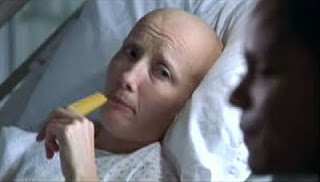



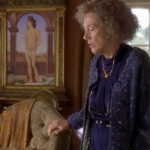
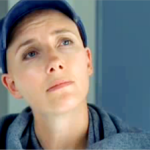
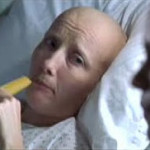
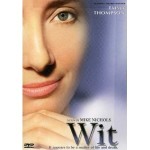
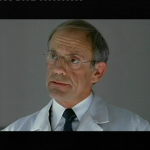
Does your site have a contact page? I’m having trouble locating it but, I’d like to shoot you an email. I’ve got some suggestions for your blog you might be interested in hearing. Either way, great blog and I look forward to seeing it improve over time.
You made some first rate points there. I regarded on the web for the issue and located most individuals will go together with with your website.